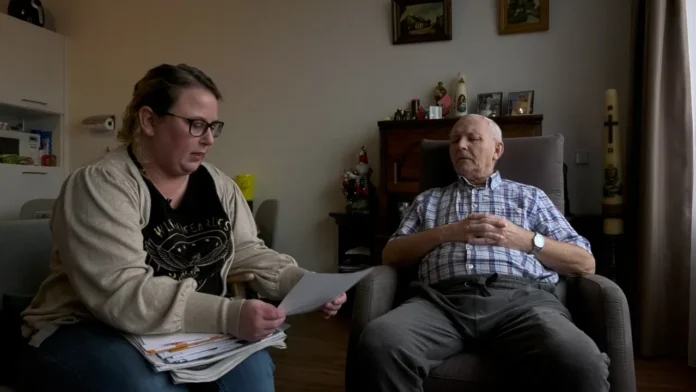Shopping, going through the mail together, arranging paperwork and doing the laundry. These are just some odd jobs that informal caregivers do for a family member or friend.
This group is growing in Eindhoven. The number of informal caregivers calling for help at the support centre has increased from 3,000 to 3,500. One of those informal caregivers who is becoming increasingly busy and who raised the alarm at the fulcrum Mantelzorg Verlicht (informal care relieved) is 45-year-old Wendy van der Palen. She takes care of both her parents. Her father has dementia and metastatic prostate cancer, and her mother has the necessary physical limitations. In addition to her parents, she also cares for her brother, who has an intellectual disability. Furthermore, her youngest son is autistic and needs intensive guidance. “You think all those odd jobs can be done, but at a certain point it becomes too much”.
Obvious
Wendy takes it for granted to care for her loved ones, which takes a steep toll. Because she is also struggling with her health, she sometimes has to make painful choices. “When I visit one of my parents, I don’t have enough energy left to shower or cook in the evening. I can’t keep all the balls in the air”.
Help
The moment when it becomes too much for informal caregivers is often also the moment they seek help. They also notice this at the Mantelzorg Verlicht support center in Eindhoven. Coordinator Liesbeth Hendriks sees several causes for the increase in informal caregivers in the city: the decline in regular care, tightness on the labour market, rising waiting lists and the closure of retirement homes. She also sees more and more emerging cases. “Mothers are often asked whether they stop working to care for their child, parent or partner. It is sad that people are taken out of their careers because otherwise care cannot be arranged”.
Furthermore, the informal care provided is becoming increasingly complex, with diverse scenarios and syndromes, Hendriks sees. “It is dangerous for the future. If too little attention is paid to this, and the pressure on informal caregivers increases, you will soon have double the number of people needing care”.
Awareness
Hendriks further emphasises that it is important that employers know better what is going on. “The risk of overload is serious. It will help if employers are more aware of this problem”.
Source: Studio040
Translated by: Bob
















